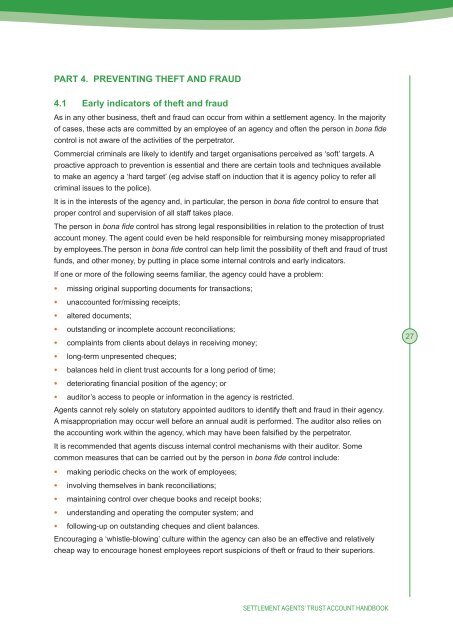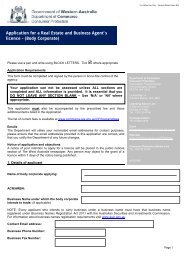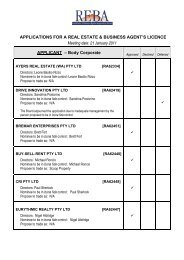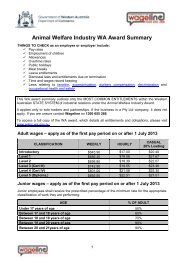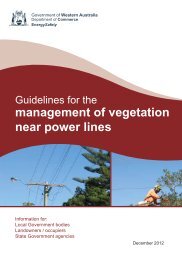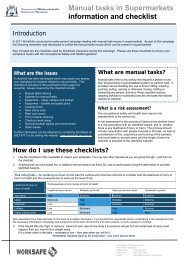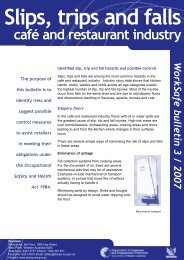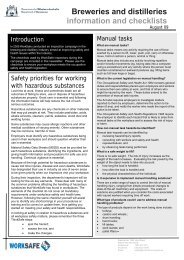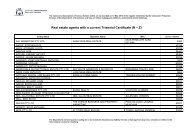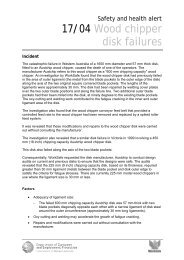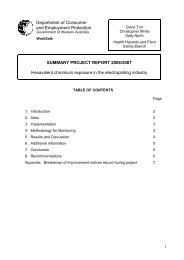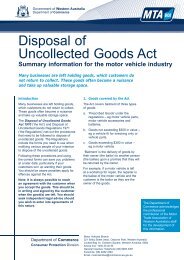Trust account handbook - Department of Commerce - wa.gov.au
Trust account handbook - Department of Commerce - wa.gov.au
Trust account handbook - Department of Commerce - wa.gov.au
You also want an ePaper? Increase the reach of your titles
YUMPU automatically turns print PDFs into web optimized ePapers that Google loves.
PART 4. PREVENTING THEFT AND FRAUD<br />
4.1 Early indicators <strong>of</strong> theft and fr<strong>au</strong>d<br />
As in any other business, theft and fr<strong>au</strong>d can occur from within a settlement agency. In the majority<br />
<strong>of</strong> cases, these acts are committed by an employee <strong>of</strong> an agency and <strong>of</strong>ten the person in bona fide<br />
control is not a<strong>wa</strong>re <strong>of</strong> the activities <strong>of</strong> the perpetrator.<br />
Commercial criminals are likely to identify and target organisations perceived as ‘s<strong>of</strong>t’ targets. A<br />
proactive approach to prevention is essential and there are certain tools and techniques available<br />
to make an agency a ‘hard target’ (eg advise staff on induction that it is agency policy to refer all<br />
criminal issues to the police).<br />
It is in the interests <strong>of</strong> the agency and, in particular, the person in bona fide control to ensure that<br />
proper control and supervision <strong>of</strong> all staff takes place.<br />
The person in bona fide control has strong legal responsibilities in relation to the protection <strong>of</strong> trust<br />
<strong>account</strong> money. The agent could even be held responsible for reimbursing money misappropriated<br />
by employees.The person in bona fide control can help limit the possibility <strong>of</strong> theft and fr<strong>au</strong>d <strong>of</strong> trust<br />
funds, and other money, by putting in place some internal controls and early indicators.<br />
If one or more <strong>of</strong> the following seems familiar, the agency could have a problem:<br />
• missing original supporting documents for transactions;<br />
• un<strong>account</strong>ed for/missing receipts;<br />
• altered documents;<br />
• outstanding or incomplete <strong>account</strong> reconciliations;<br />
• complaints from clients about delays in receiving money;<br />
• long-term unpresented cheques;<br />
• balances held in client trust <strong>account</strong>s for a long period <strong>of</strong> time;<br />
• deteriorating financial position <strong>of</strong> the agency; or<br />
• <strong>au</strong>ditor’s access to people or information in the agency is restricted.<br />
Agents cannot rely solely on statutory appointed <strong>au</strong>ditors to identify theft and fr<strong>au</strong>d in their agency.<br />
A misappropriation may occur well before an annual <strong>au</strong>dit is performed. The <strong>au</strong>ditor also relies on<br />
the <strong>account</strong>ing work within the agency, which may have been falsified by the perpetrator.<br />
It is recommended that agents discuss internal control mechanisms with their <strong>au</strong>ditor. Some<br />
common measures that can be carried out by the person in bona fide control include:<br />
27<br />
• making periodic checks on the work <strong>of</strong> employees;<br />
• involving themselves in bank reconciliations;<br />
• maintaining control over cheque books and receipt books;<br />
• understanding and operating the computer system; and<br />
• following-up on outstanding cheques and client balances.<br />
Encouraging a ‘whistle-blowing’ culture within the agency can also be an effective and relatively<br />
cheap <strong>wa</strong>y to encourage honest employees report suspicions <strong>of</strong> theft or fr<strong>au</strong>d to their superiors.<br />
SETTLEMENT AGENTS’ TRUST ACCOUNT HANDBOOK


